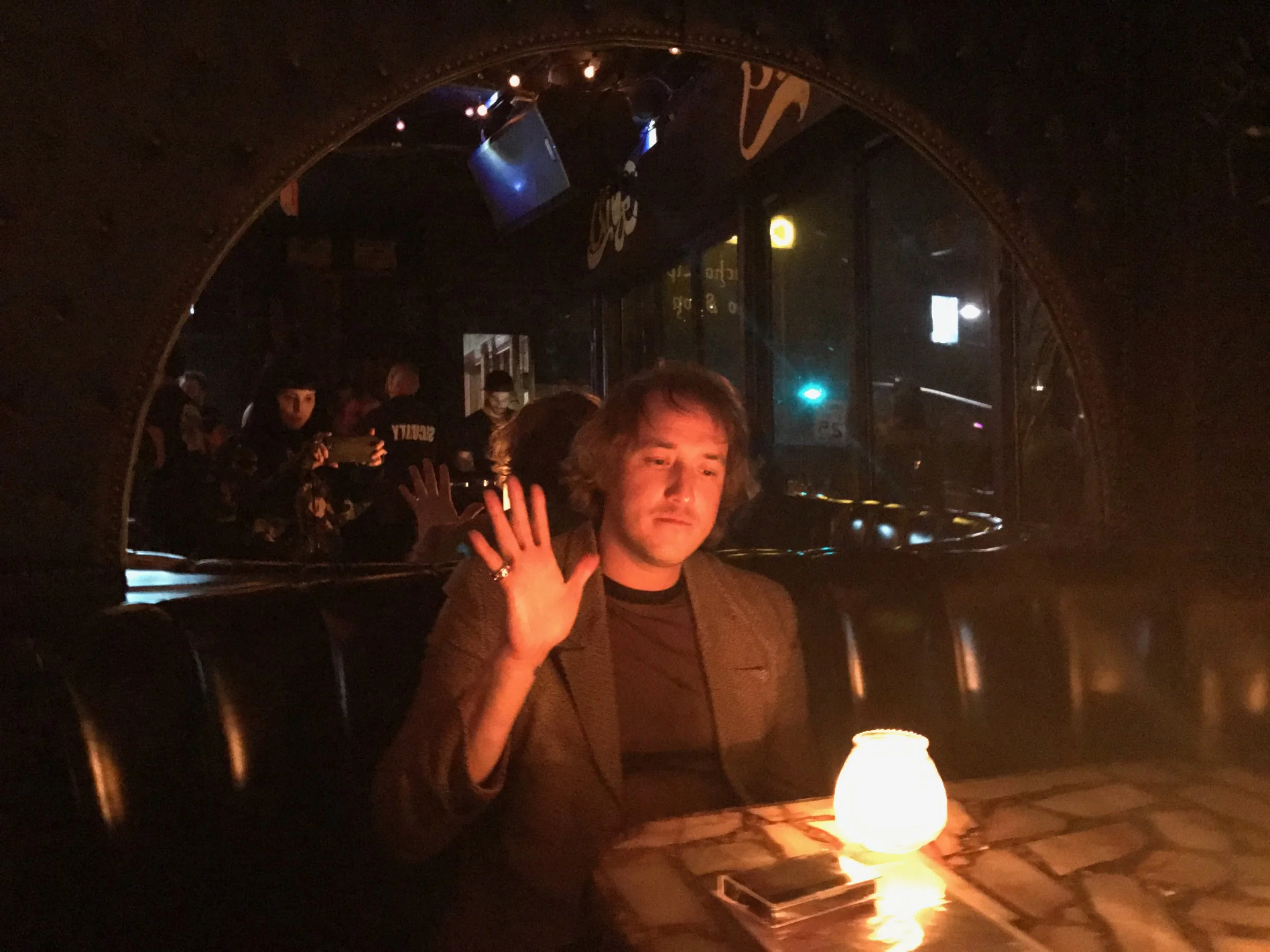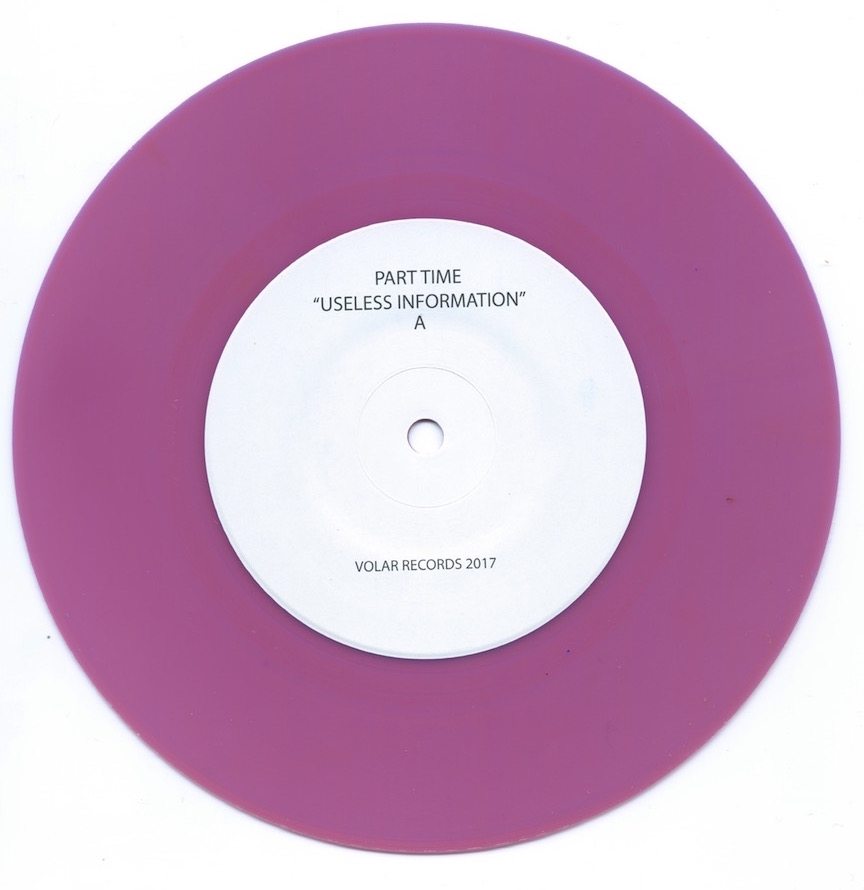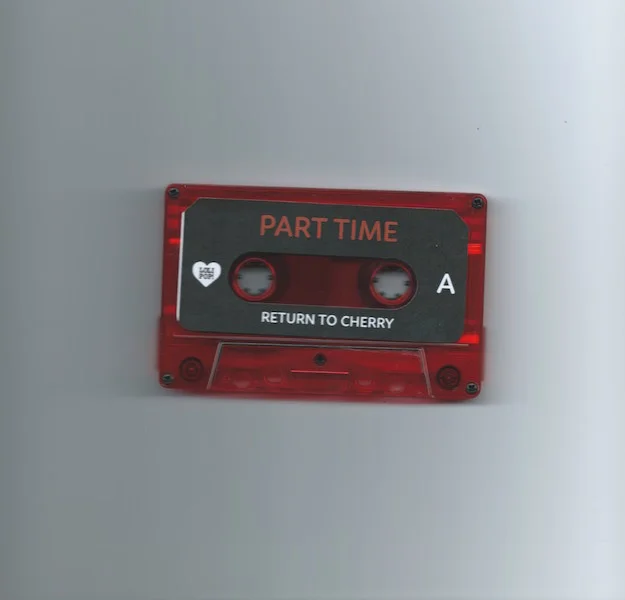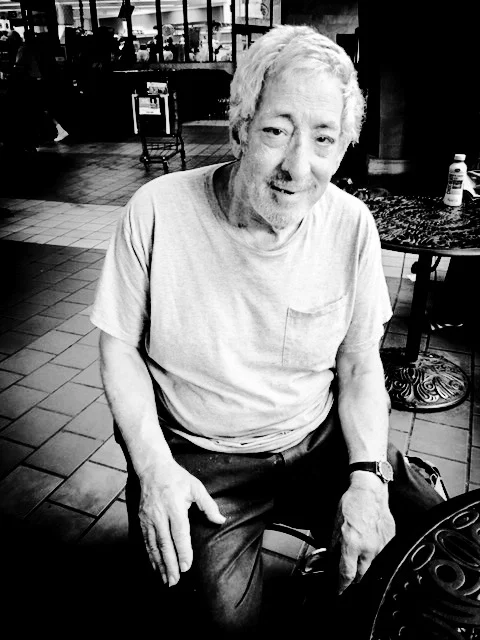Quality Time with Part Time: Recordings Revisited, Live Shows, and a New Album
We've been into Part Time's recordings for a while, and how could we not be? Everything about Part Time's music appeals with its synthy soundscapes and remarkable melodies sitting atop catchy grooves. And unlike some artists who stumble when translating their recorded output to a live situation, Part Time also delivers in person. After catching a recent live New Year's Eve show at Non Plus Ultra that also included Gary Wilson & the Blind Dates, and Jimmy Whispers, we knew we had to get a few moments with Part Time. We sat down with David Loca (a.k.a.Part Time) to talk recordings, live shows, a new album, and more.
Bobby Weirdo: We were just speaking about different cities a moment ago before we started the “interview” portion of our talk, and I was wondering about your own background. We met each other in L.A., but you’re actually from San Francisco, right?
David Loca: Correct
BW: How long did you live there?
DL: I lived there for about five years. Originally I’m from Texas. I moved to San Francisco in my early 20s, and before that I was in Austin. I was born in El Paso, Texas, which borders Mexico. My mom is from Mexico, and my dad is white. I’m half white, half Mexican.
BW: Going back to your days in Texas, you had a project called Toko Ri Get High.
DL: That was a little band I had in Austin when I first moved away from El Paso. It was me doing home recordings in garages or whatever rooms I was in. It was really weird and very fun. [It was] garage, psychedelic stuff, synth stuff. I just poured in everything that I liked.
BW: When were you in The Time Flys?
DL: I was in The Time Flys when I had just moved to San Francisco. [That was] with Eric Johnson and Andy Jordan from the Cuts. The Cuts were Andy Jordan, Benjamin Brown, Danny James, Garret Goddard, and Carlos Palacios. Seeing The Cuts was my biggest inspiration that lead me to start my own rock band, and opened up my world to more music. They used to tour El Paso when I was really young. Danny James is from Oakland, and I also used to play with him before moving to L.A. So I’ve known the Cuts and Danny James a long time. Danny and I were the same age – he was always the younger one in The Cuts. I loved everything they were doing – garage and classic rock - so I’d hang out with them. I didn’t have any friends that were cool like that in El Paso, so I was really thankful for meeting the Cuts and Danny when I was eighteen.
BW: When did you become Part Time?
DL: It was a big, slow transition. It solidified when I was in S.F. When I quit the Time Flys, I put all my efforts into recordings and synths. I had a tiny apartment where I lived and recorded songs, and gave my CDs to all my friends. I think Tamaryn, who was on Mexican Summer, passed my music on to that label and they started putting out my old recordings.
BW: You’re billed in different ways: Part Time, Parttime, Davida Loca, David Speck…
DL: [laughs] It’s all the same thing! I do silly things.
BW: You recently released a 7 inch on Volar Records with Drinking Flowers. Is there a connection between Part Time and Drinking Flowers, or is it a random pairing?
DL: We’ve become friends these last couple of years. I really like their music, and they like mine. They asked me if I wanted to be a part of this, and I did.
BW: Looking ahead, you’ve got an album coming out on Cult Records. How did that come about?
DL: Julian Casablancas has been a fan of my music since my first album came out in 2012. The Drums like my music, and took me on a big tour, which I was very grateful for. I hit a lot of different people with the music, and Julian Casablancas was one of them. It was a sold-out show in New York, and later he wrote me. He wanted to work with Part Time since then, but I was tied up with label obligations. Finally it's happened.
BW: I’ve read your description of Part Time as “outsider synth-pop”, and am wondering what part of Part Time is outsider, and what part is pop?
DL: Well, when it comes to pop, I write for the love of it. I was heavily influence by my dad who is an artist and my mom is very musical. I grew up with my dad's records, paintings and video art he’d make. He turned me on to Human League and The Beatles and everything in between very young. So I write with a weird pop sensibility, but I don’t like contemporary pop. I like old stuff, and like recording in the old ways.
I say “outsider” because I don’t really relate to the art school people. I never went to art school or college. I meet a lot of people like that in L.A. and everywhere I go. They’re very cool and nice, but they know so much more about things I don’t know about and come at it from a different angle I don’t know about. I like contemporaries who have that approach, but I don’t do it. So I just say I’m an outsider, and I also listen to a lot of outsider and weirdo stuff, like one-off albums by people who don’t necessarily have much to do with music.
BW: I’ve seen a picture of you and Ariel Pink where it looks like he’s playing a keyboard, and you’re playing bass. Did that result in a recording?
DL: Oh yeah! That was one of the first times we met, hanging out through mutual friends. We were just messing around – nothing came of it.
BW: When you are recording, is it always a home recording environment at your place?
DL: Yeah – always my place. That’s where all my music comes from. I record and mix it myself. There are a few songs on my second album, PDA, that were done in a studio. It was a great experience. And now I’m branching out and trying new things on the Cult Records album that’s coming out. It’s all in a studio. Some ideas are old, some are new, and I’m trying to see what can happen from that.
BW: Is that in process right now?
DL: I just finished it. They set me up for a month in a Hollywood studio. It’s a new studio that doesn’t have a name yet, but Julian Casablancas and the Voidz work there.
BW: Does the album have a title yet?
DL: Not officially. I might call it Special Blue.
BW: What’s the composing process like for you? Do you write with an instrument, at a computer, or what?
DL: I compose live with keyboards and guitars. A lot of it is freestyle – I do it really fast, and move on really fast. I don’t have lyrics to most of my songs. If I have to write lyrics, I have to listen to what I already did. I’m very neurotic and don’t have patience, and that’s why I have so many recordings. I just write, write, write.
BW: We were talking about the album PDA. Is the song “No Boys Til Midnight” just a bonus track on that album? I'm curious, because it’s such a standout song on the album.
DL: Yeah, if I remember, the label threw that in as a bonus download or something.
BW: Do you speak Spanish?
DL: Yes.
BW: I ask because there’s at least one song you’ve written and recorded in Spanish, “Soñando De Ti". Do you have to access a different part of your brain to create a song like that in another language, or is it the same process? In that song it seems like your voice takes on a different character.
DL: I listen to Mexican and Spanish music, and that song just kind of came. Some of those lyrics derived from a Conjunto Africa song, and it just grew from that. But every song comes from a different part of my brain. I write songs as a gay man sometimes, and sometimes as a woman. I just think, “if I were this person, I would like to write a song like this.” Like on H.F.M., a new double album that came out, there’s a song called “Hey Mister What’s It Like To Be a Man” about a young gay boy coming out and trying to understand men. I just write in different characters.
BW: You say that H.F.M. just came out (released by Plastic Response, Danger Collective, and Lolipop Records), but there was an earlier version of that that came out a couple years ago on Plastic Response, right?
DL: Yeah, the first version came out on cassette.
BW: And H.F.M. stands for “high form of masturbation”?
DL: Yeah! [laughs]
BW: I wanted to ask about your collaboration with Geneva Jacuzzi on the song “Ganz Wien”. First of all, that’s not you as a mime in the video, is it?
DL: No, it’s not. But I tell people it is sometimes!
BW: Is the appearance of the mime a nod to Geneva Jacuzzi, who mimes?
DL: Yeah. I’m a YouTube rat – always looking and looking. I found footage of a mime named Rocco, who’s an Italian mime-magician. You can’t find it online anymore. Geneva and I messed around and made a song together, and I thought it was the perfect video for the song.
BW: There’s a Falco song with the same name. Are they different songs?
DL: No, it’s the same lyrics. I took the lyrics from the Falco song and sang them, and I don’t even know if I pronounced it correctly. We were being silly.
BW: Do you have a release date for the new album?
DL: There’s no release date yet, but we’re thinking this summer.
BW: I’ve seen you play a couple times live, and I was wondering about what it’s like for a solo recording artist to then go out and perform the music with a band. Have the live band performances affected the way your write and record your new music, or are the two versions of your music distinct?
DL: It’s a mix now. I’ve had these guys for a while. They’re good friends and great musicians. They can do anything I can do, if not better. So now we’ll jam some songs together sometimes, and they’ll help me finish songs. I let them do their own thing and translate the ideas their way.
BW: I’ve always been curious about the album Return to Cherry. It seems like it’s two albums mashed up into one. There’s a jangly, classic English-sounding element to the album, but there’s also the more recognizable synth-based Part Time element to it.
DL: Yeah, that’s a really good observation because I recorded another tape or album under the name David Loca and the Berkshire Hobbits. I included some of those songs on Return to Cherry, so it sort of alternates between Part Time and Berkshire Hobbits. But in reality it’s all me. Part Time is more of a home-recording synth thing, and Berkshire Hobbits is more psychedelic garage stuff. I like all kinds of music, so it’s all me. People don’t really like my take on the psychedelic garage stuff as much as they do the Part Time synth stuff, but I’ve been doing it forever and I’ll always have that mix.
BW: Does knowing whether your music is going to be released as cassette tape, vinyl, digital download, or CD affect the way you write and record your music?
DL: No. I just leave that up to people who want to release my music. I’m grateful to anyone who wants to release my music in any format. I’m glad to have fans and people who want to listen to it. That makes me happy. I’ve been a musician my entire life, and that’s all I want to do, but I never wanted to be famous or anything like that. I just want to jam with people, record my music, release it, and have it there forever. I don’t care who listens to it now or later, as long as it’s there and it’s never going away.
BW: Besides the new album, is there anything coming up for Part Time in 2017?
DL: That’s it. Hopefully I can tour with a big band, get some new fans, and make some money just so I can take care of myself and my family. All I have planned is more music.








